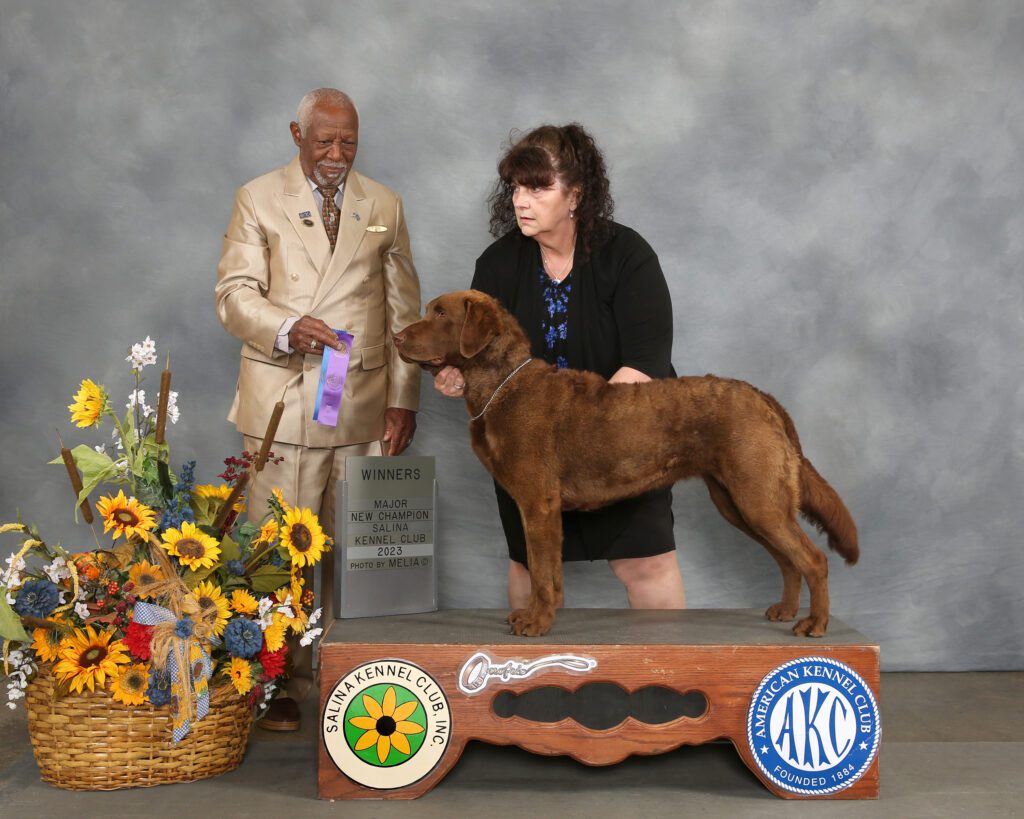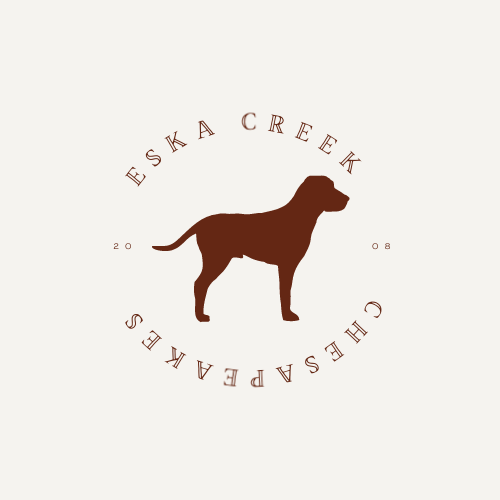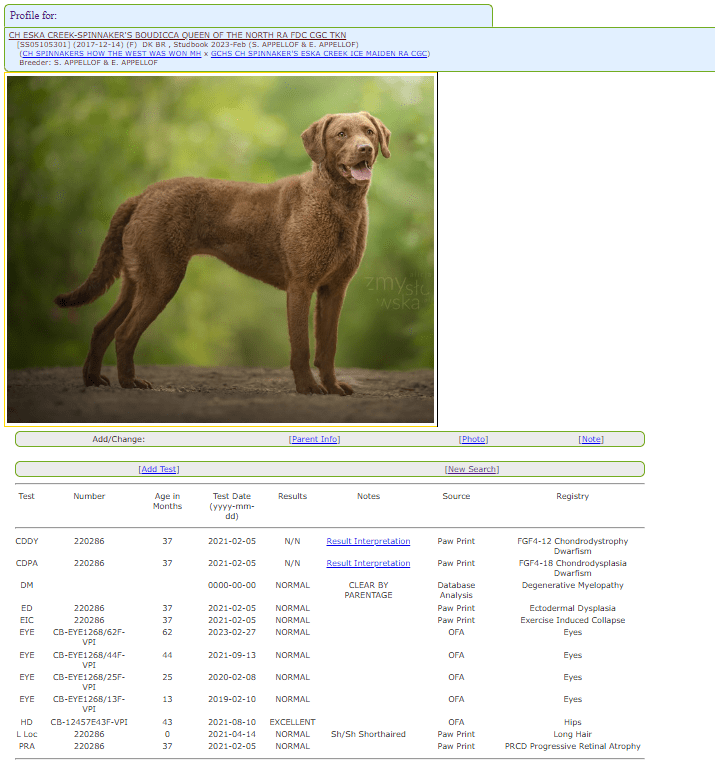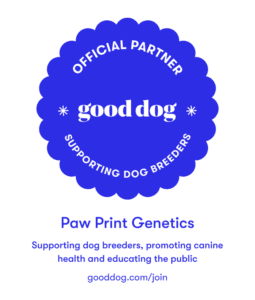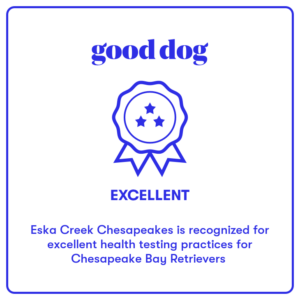New AKC Champion at Eska Creek
June 13, 2023
No Comments
New AKC Champion at Eska Creek
CH SPINNAKER'S CHIRP IN THE TALL GRASS FDC CGC
After the last 2 weekends of driving around Central Kansas, Miss Burdi is (pending AKC Confirmation) CH SPINNAKER’S CHIRP IN THE TALL GRASS FDC CGC. Breeders: Debora Osborn & Kimberly K Peckman.
Through a coordinated effort to make sure majors were available, we managed in Topeka to get her majors out of the way. Thank you to Debbie Osborn and Skye Kreger for Multiple Chessie Wrangling.
Thank you to judges Peggy Beisel-McIlwaine, and Faye Strauss at the Topeka Shows.
Then, last weekend in Hutchinson we again managed to have majors available and a bunch of finishes happened for the group of Chessies in attendance. Thanks to Skye Kreger and Renee Wolf for bringing their pups.
Thank you to judges James Frehring, and Eugene Blake, at the Hutchinson shows, and a big Thank You, especially to Mr. Blake, for his patience at the photo stand. Burdi had never been on the box or had her picture taken before.
